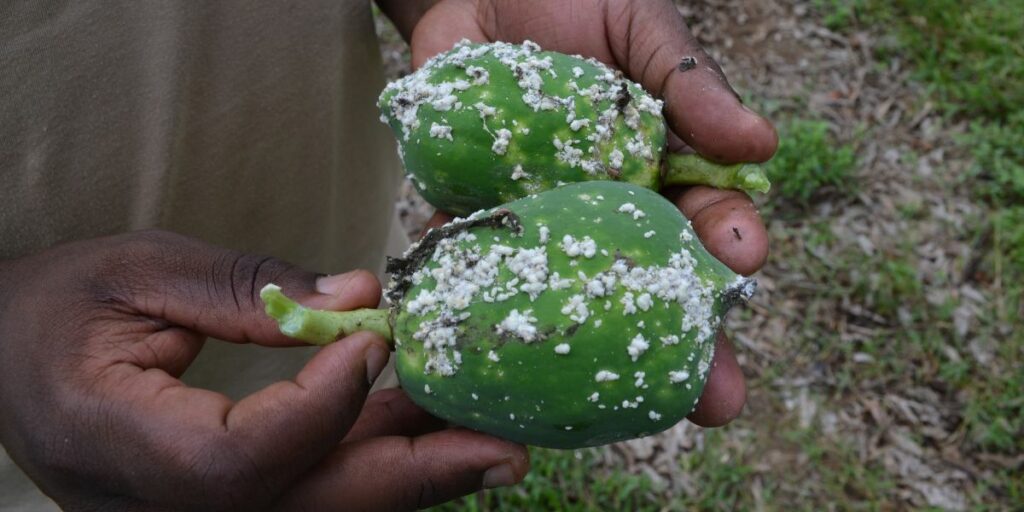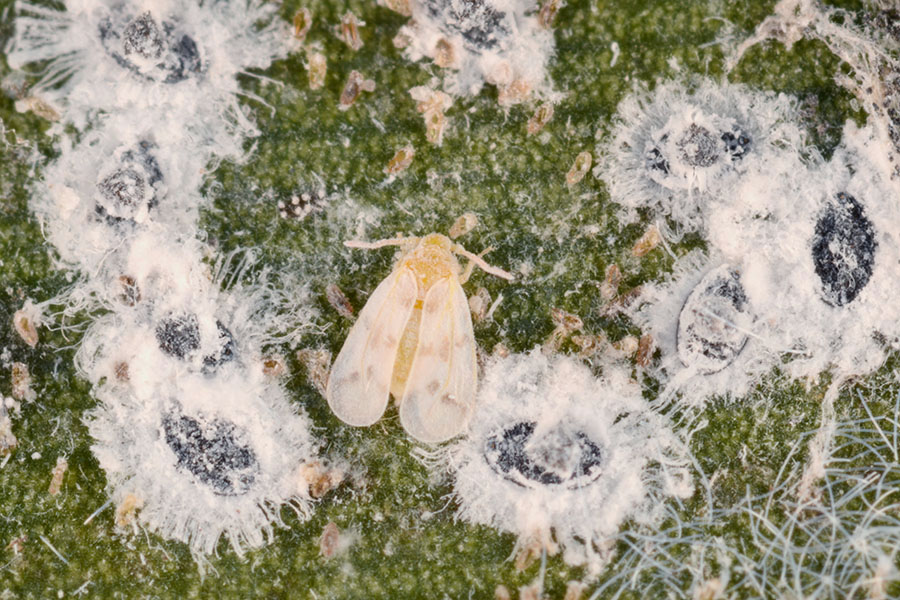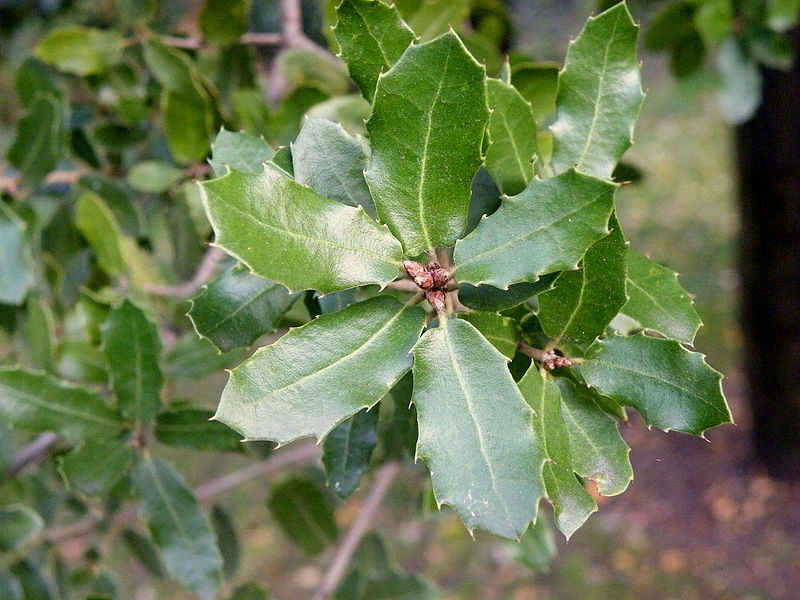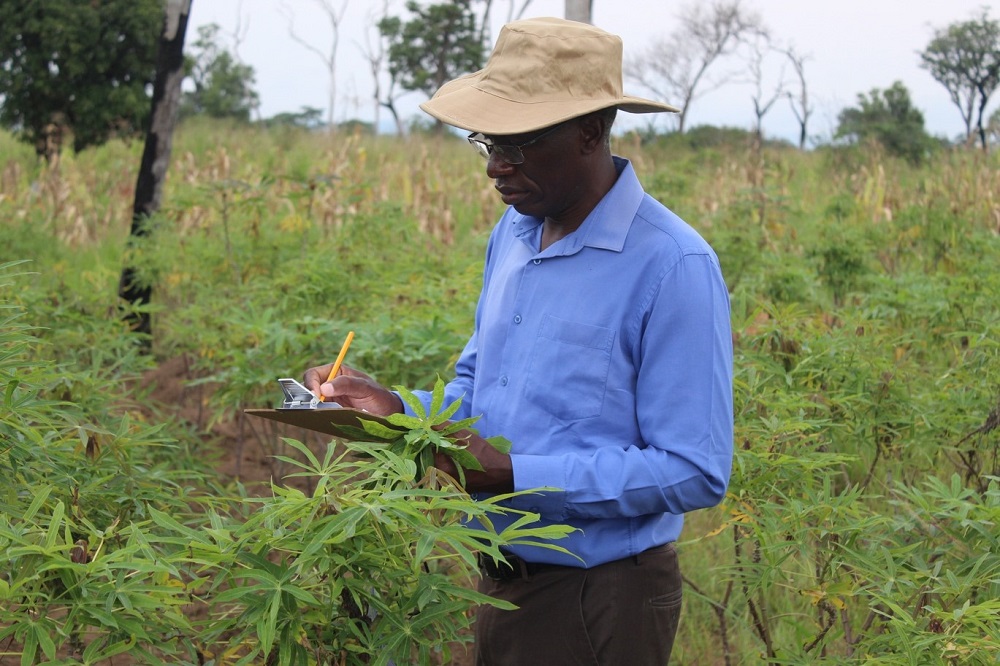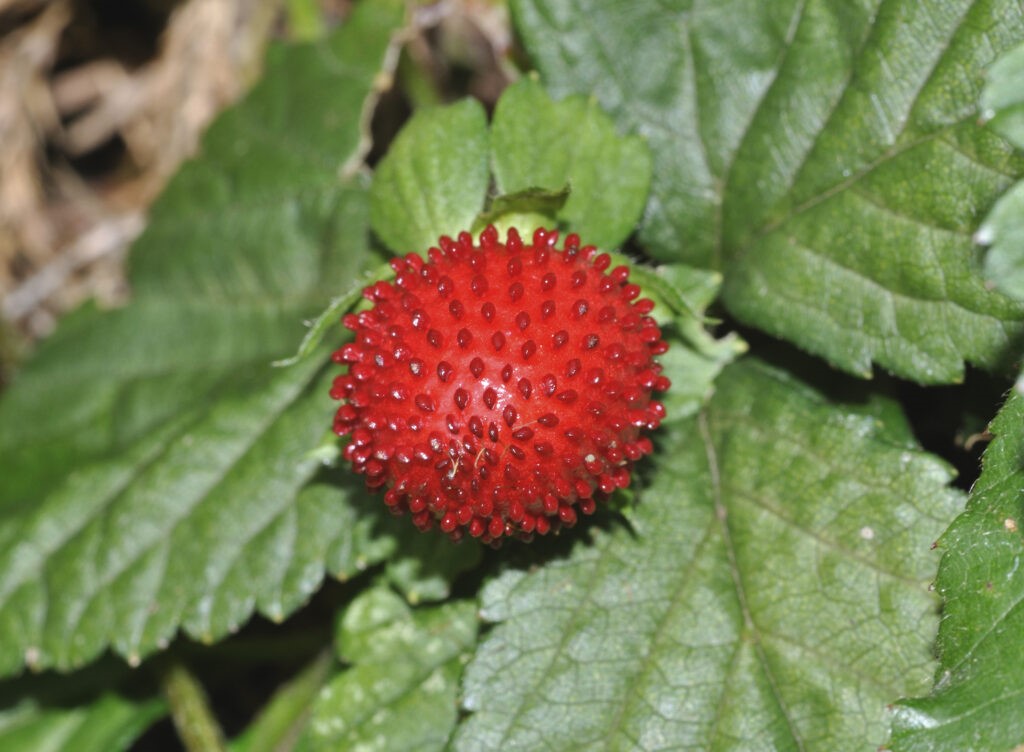Could biocontrol solve the papaya mealybug problem for Ugandan farmers?
Papaya mealybug, Paraccous margniatus, is native to Central America but has spread rapidly in invaded countries. It was detected in Uganda in 2021 where it has the potential to affect the production and quality of papaya and other host crops.
Update: New Pest & Disease Records (7 September 2022)
We’ve selected a few of the latest new geographic, host and species records for plant pests and diseases from CAB Abstracts. Records this month include a new distribution record of palm whitefly Aleurotrachelus atratus in India and the first report of coffee canker disease caused by Ceratocystis fimbriata in China.
The life cycle of the African armyworm
The life cycle of the African armyworm (Spodoptera exempta) makes it an extremely destructive pest. It grows and reproduces quickly with just ten days between hatching and pupation.
Sanitary and Phytosanitary measures: Challenges and opportunities in Asia and the Pacific region
Global agricultural exports have more than tripled in value and doubled in volume since 1995, exceeding US $1.8 trillion in 2018. Plant and plant-based products contribute more than 50% to the total trade. International trade in fruits and vegetables stands at 24% followed by 15% cereals; and 10% comprising coffee, tea, cocoa & spices.
Update: New Pest & Disease Records (5 August 2022)
We’ve selected a few of the latest new geographic, host and species records for plant pests and diseases from CAB Abstracts. Records this month include the first report of Pestalotiopsis biciliata causing dieback on Quercus coccifera and Pistacia lentiscus in Tunisia and the first report of Sida leaf curl virus and associated betasatellite from tobacco.
Better Cotton Initiative: biocontrol training in India
India is the world’s largest producer of cotton. It is one of the country’s major cash crops with nearly 6 million farmers making a living from growing cotton. The Better Cotton Initiative helps make cotton farming a more climate-resilient, environmentally friendly and responsible business. Working with smallholders, farm workers and communities, the Better Cotton Initiative…
Update: New Pest & Disease Records (8 July 2022)
We’ve selected a few of the latest new geographic, host and species records for plant pests and diseases from CAB Abstracts. Records this month include two new species of Plasmopara affecting wild grapes in the USA and the first report of rust disease on Potentilla indica caused by Phragmidium duchesneae in Japan.



